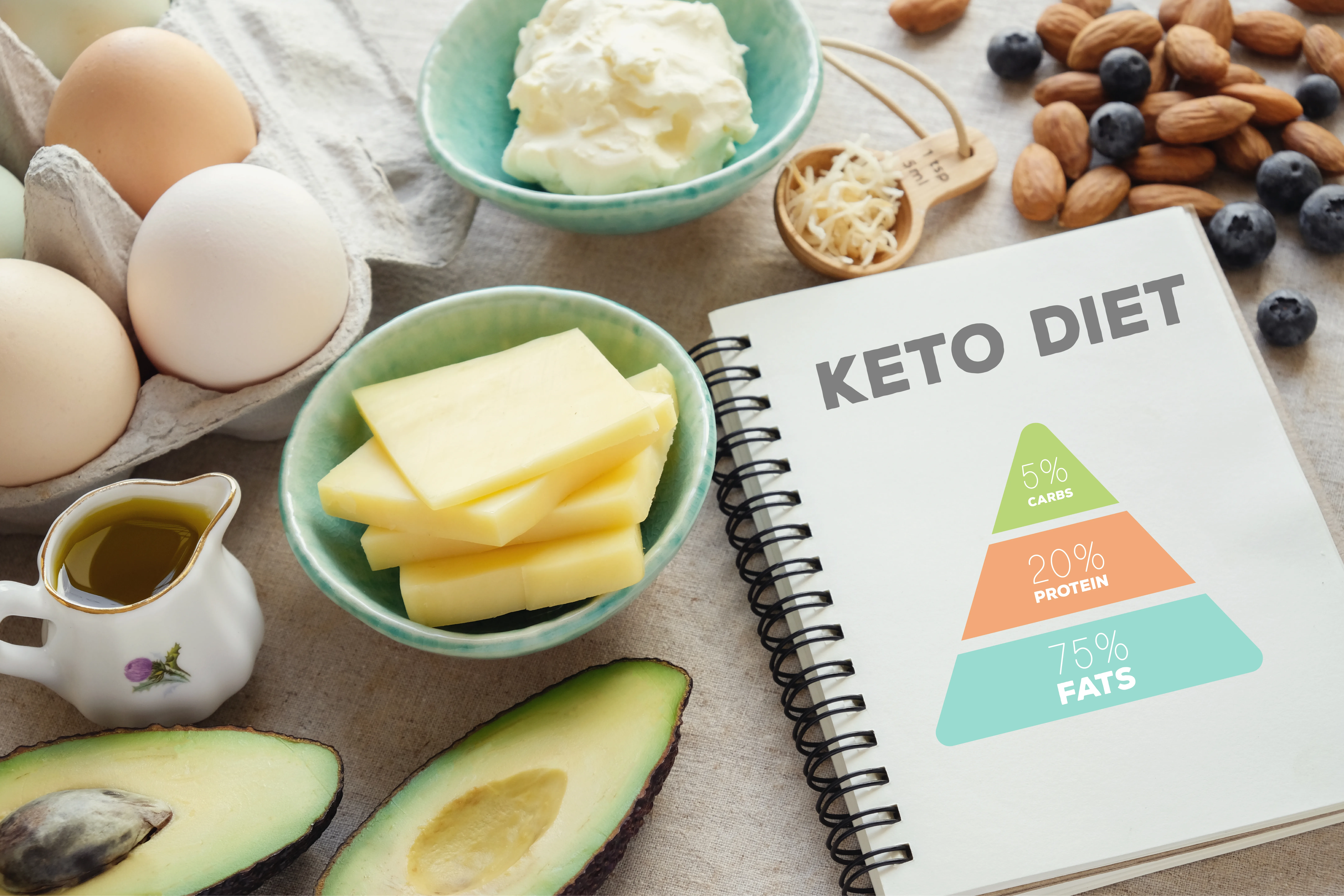
The keto diet has been around for years – since the 1920s when it was used initially for the treatment of children with epilepsy. In recent years, this benefit was not as mainstream as the marketed benefit of weight loss.
Is such a strict diet safe? Is it for everyone? Or do the cons outweigh the pros? Importantly, does the keto diet promote unhealthy eating habits that may lead to an eating disorder?
What is the keto diet?
“The ketogenic diet is a high fat, moderate protein, low carbohydrate eating pattern that differs from general healthful eating recommendations (set forth by the U.S. National Academy of Medicine).”
Essentially, the keto diet is characterized by a strict pattern of eating focused on limiting the glucose input so that the body will, after a few days, turn to the fat stored in the liver for energy. This is known as ketosis, or “a metabolic adaptation to allow the body to survive in a period of famine. Your body will break down ketone bodies, fuel the liver produces from fat, instead of sugar or glucose from carbohydrates.”
Even though ketosis may be a natural occurrence in the body, it is not natural for the body to be forced into or remain in this state for long.
What do you eat while on the keto diet?
The keto diet is extremely restrictive and requires that your calorie intake come from 75 percent fat, 5 percent carbohydrates and 15 percent protein – versus a typical diet that suggests only 20-35 percent of calories should come from fat. Due to increased fat, decreased protein and hardly any carbohydrates, what you can eat while on keto is minimal.
Most keto diets include:
- Saturated fats (in high amounts)
- Palm and coconut oil
- Butter
- Cocoa butter
- Lard
- Unsaturated fats
- Nuts
- Olive oil
- Tofu
- Avocados
- Proteins
- Bacon
- Pork
- Beef
- Fruits and vegetables
- Berries (primarily)
- Dark leafy greens
- Most other fruits and vegetables contain high carbohydrate counts
However, many of these items can be expensive, and food items marketed for keto diets are not just costly, but usually unnecessary in the overall process.
So, is the keto diet safe?
While it might be trendy, there is little research to suggest that the keto diet has many pros. The diet is low in the vitamins, minerals and other nutrients the body needs to function appropriately, leading to several potential health issues, including:
- Increased risk of heart disease
- Constipation due to a diet low in fibrous foods
- Worsening of liver problems
- Kidney issues, since the keto diet may overload the kidneys with proteins they cannot metabolize efficiently
- Low blood pressure
- Nutrient deficiency due to a significant lack of fruits and vegetables which contain important amounts of vitamins and minerals
Additionally, many nutritionists and dieticians do not recommend the keto diet as a good option for weight loss, as the diet is not only unsustainable, but the weight lost while on the diet is not long-lasting and is usually gained back, plus some.
Is the keto diet harmful for eating disorders?
One of the key components of the keto diet is restriction and a hyper-focus on what you can or cannot eat. Keto is very much an “all or nothing” diet, meaning it will not be effective if the instructions for limited carbs and increased fats are not followed.
But, for some people, especially those who may have struggled with disordered eating in the past, this restriction may cause a hyper-focus on diet, as well as a mindset of weight loss that quickly turns unhealthy. Especially if the effects of the diet do not meet your expectations, or the weight loss is not to the extent you were desiring. From this other unhealthy methods may be explored or dangerous patterns of eating may be created.
A keto diet is usually best done under the recommendation and/or supervision of a doctor – and rarely do doctors recommend keto as a viable weight loss option. Usually, diets rich in proteins like chicken and fish, colorful fruits and vegetables and healthy amounts of whole grains are recommended for weight loss without the risk of nutrient deficiency.
So, even though keto diets do have some benefits for those who use them to treat certain medical conditions, it is not the recommended weight loss diet. Because of its risks of increasing disordered eating habits, other more effective forms of weight loss should be pursued under the direction of a dietician or nutritionist.
Are you struggling with fad dieting?
Keto’s strong presence in the dieting world does not mean that it is a good option for you – because of its numerous harmful effects, keto is most often safe only when done under the observation of a doctor. The high cost of many keto-friendly options, the harm it may cause the body and the temporary weight loss does not make it a viable option for many.
But if you have experimented with keto, or any dieting trend, and found it harmful to your mental or physical health, help is available. Seeds of Hope is here to help you address any eating disorder concerns and behaviors.
To learn more contact us online or by calling 610-644-6464.


